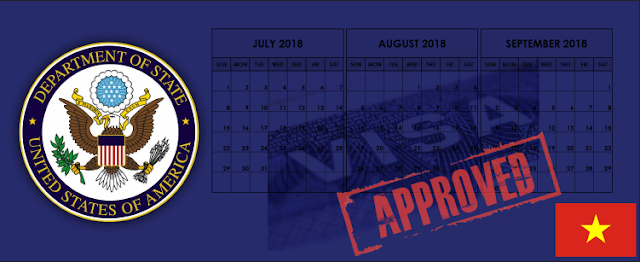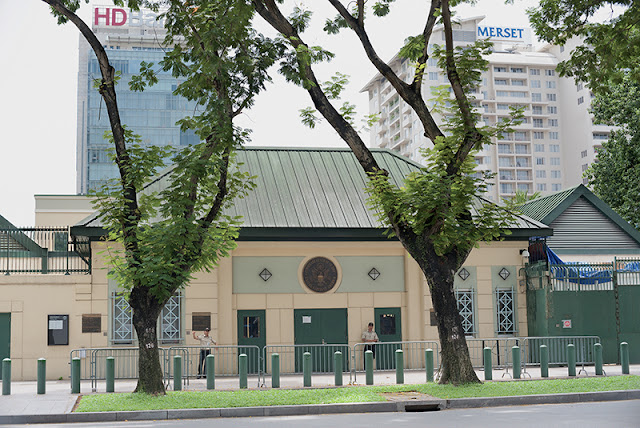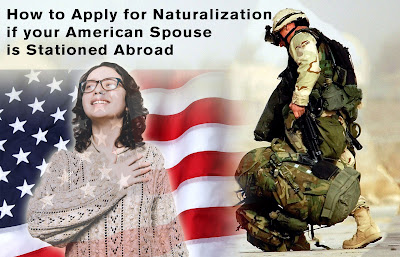The U.S. Department of State (DOS) has released its visa issuance statistics for July, August and September 2018.
Immigrant Visas
For Vietnamese nationals, a total 2,637 immigrant visas were issued in July; 3,836 were issued in August; and 2,393 were issued in September.
July: Only 83 of the immigrant visas were classified as IR-1 visas while 194 were CR-1 visas.
A total of 2,592 immigrant visas were issued by U.S. Consulate in Ho Chi Minh City while 3 immigrant visas were issued by the U.S. Embassy in Hanoi.
August: A total of 82 IR-1 visas and 148 CR-1 visas were issued in August. Majority of the immigrant visas were issued by the consulate in Ho Chi Minh City, specifically, 3,785 immigrant visas were issued in Ho Chi Minh City while only 7 immigrant visas in Hanoi.
September: Despite the decrease of immigrant visas being issued, there was an increase in the visas issued to foreign spouses of U.S. citizens. There were 93 IR-1 visas and 204 CR-1 visas issued to those married to U.S. citizens.
All 2,370 immigrant visas issued in September were from the Ho Chi Minh City Consulate. There were no immigrant visas issued by the U.S. Embassy in Hanoi.
There were no EB-5 immigrant investor visas from July through September.
Nonimmigrant Visas
A total of 14,071 nonimmigrant visas were issued to Vietnamese nationals in July; 13,204 were issued in August; and 9,441 were issued in September.
July: Out of 14,071 nonimmigrant visas issued, 8,264 visas were B-1/B-2 visas. A B-1/B2 visa is issued to those who are visiting the U.S. for temporary business and/or pleasure purposes. 5,135 visas were issued to Vietnamese students aspiring to study in the United States: 4,942 F-1 visas were issued to academic and language students, 13 M-1 visas were issued to vocational students and 180 J-1 visas were issued to exchange visitors such as exchange students, au pairs, professionals, scholars, and teachers.
There were 9,588 nonimmigrant visas were issued by the consulate in Ho Chi Minh City while 3,836 nonimmigrant visas were issued by the Embassy in Hanoi.
August: Majority of the 13,204 nonimmigrant visas issued in August were B1/B2 visas (9,602). There was a decrease of visas issued to Vietnamese students for academic purposes. 2,754 F-1 visas, 9 M-1 visas and 130 J-1 visas were issued in August.
A total of 8,880 nonimmigrant visas were issued in Ho Chi Minh City while 3,663 nonimmigrant visas were issued in Hanoi.
September: Lastly, 8,158 B-1/B-2 visas were issued in September. 405 F-1 visas were issued to academic and language students while 31 M-1 visas were issued to vocational students and 72 J-1 visas were issued to exchange visitors.
There were 6,800 nonimmigrant visas were issued by the in Ho Chi Minh City while 2,058 nonimmigrant visas were issued in Hanoi.
The numbers released by DOS only show approvals and not the number of refusals which is not available to the public.
by: Enterline and Partners Consulting
by: Enterline and Partners Consulting












